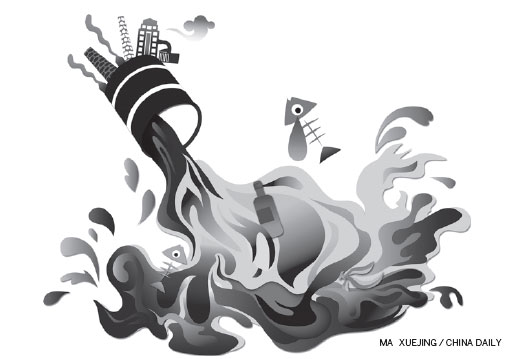Clean water vital for China's growth
By Cecilia Torta Jada (China Daily) Updated: 2015-03-24 08:11

In 2014 alone, high levels of carcinogenic substances were found in drinking water in Lanzhou, Gansu province, due to crude oil leak from a pipeline owned by a unit of China National Petroleum Corporation; and Wuhan faced serious water constraints because of chemical pollution in the Hanjiang River, its main source of drinking water.
China has reasonably good legislation on environmental protection but it is seldom enforced. The Prevention and Control of Water Pollution Law clearly stipulates water quality and pollution discharge standards to prevent surface and groundwater pollution. But the law is not fully implemented.
As people have become more affluent and informed, they are becoming more aware of the health and environmental risks, on which they have no control. Aware of the pollution problems as well as public concerns, the country's top leadership declared a "war against environment pollution" last year. At the recently concluded annual session of the National People's Congress, or the top legislature, Premier Li Keqiang said the problems are "a concern that is uppermost in all people's mind", and acknowledged that the progress "made still falls far short of the expectation of the people". But he emphasized the government's determination to continue its "efforts until we achieve our goal".
China's water problems have developed over decades because of lack of proper management. Now that the government has publicly acknowledged the magnitude of the problems and people are demanding effective solutions, the problems will decline. But that will happen over a period of years, not overnight.
The author is a senior research fellow at the Lee Kuan Yew School of Water Policy and former president of the International Water Resources Association.

I’ve lived in China for quite a considerable time including my graduate school years, travelled and worked in a few cities and still choose my destination taking into consideration the density of smog or PM2.5 particulate matter in the region.











